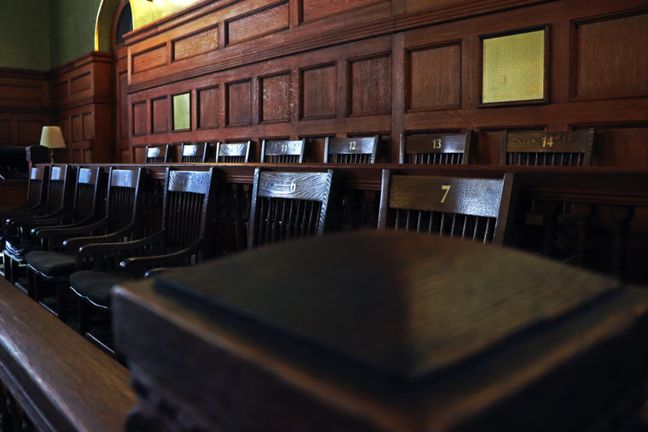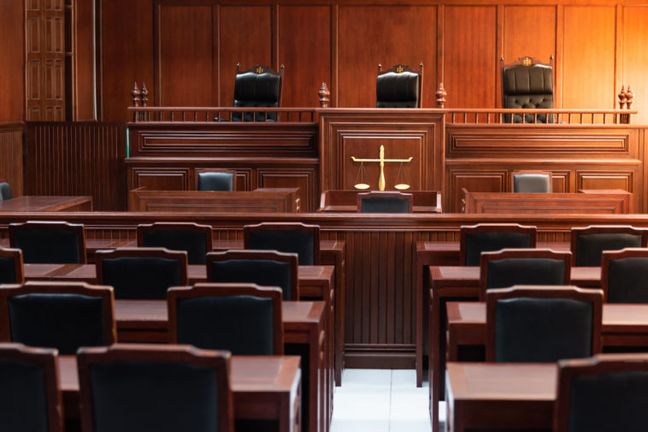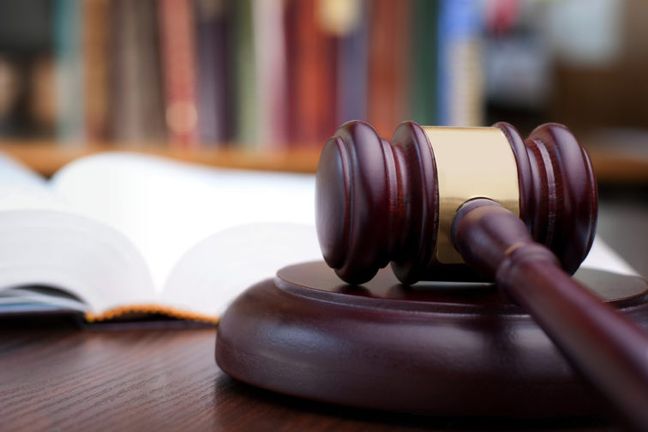Juries hold significant power. The power to decide extreme sums of payment. The power to decide life or death. Juries also hold the power to act as a check on government power to ensure the separation of powers between the legislative, executive, and judicial branches. With such power comes responsibility, and such responsibility must begin with a fairly selected jury. The Washington Supreme Court analyzes fair and just jury selection in State v Pierce, 455 P.3d 647 (2020). Jury selection must be fair in all aspects. Courts have the obligation of ensuring such fairness in order to secure due process for all parties.
Beinhoff and Pierce were tried before a jury and found guilty of first degree murder. They appealed this decision, contending their jury was not fairly selected because the State improperly elicited a conversation about the death penalty during voir dire and improperly used a peremptory strike to dismiss an African-American juror. This was a noncapital case and the death penalty was not involved. The Court of Appeals found the prosecutor committed misconduct by eliciting a conversation about the death penalty in a noncapital case and that the trial court abused its discretion in not curtailing the conversation. Since the conversation led to the dismissal of at least two jurors, the Court of Appeals reversed both men’s convictions.
The Washington Supreme Court found it was error to tell the potential jurors during jury selection they were not being asked to sit on a death penalty case. The Court had previously adhered to a strict prohibition against informing the jury of sentencing considerations, thus ensuring impartial juries and preventing unfair influence on a jury’s deliberations. While the prosecutor did not explicitly raise the death penalty during voir dire, as a direct result of his questions, some jurors expressed concerns about sitting on a jury in a possible death penalty case. As a direct result of the prosecutor’s questions, all of the potential jurors’ minds were drawn to the possible death penalty sentence.
The Washington Supreme Court also found the judge and counsel tried hard to follow State v. Townsend, 142 Wash.2d 838, 15 P.3d 145 (2001) (forbidding the court or counsel to say whether or not the case was capital) during voir dire, leading directly to the State’s attempt to dismiss juror 6 and the resulting Batson challenge. As argued to the Court, however, Townsend leads to death-qualification and death-qualification has a racially disproportionate impact.
The Washington Supreme Court held exercising a peremptory challenge to remove a juror who does not “qualify” under death-qualification questioning is a presumptively invalid basis for exercising a peremptory challenge – which is precisely what happened here. During the Batson discussion, the State justified its attempt to excuse juror 6 on grounds violating GR 37. The State invoked the fact juror 6 had a brother who was convicted of attempted murder and the process of conviction and sentence “left a bad taste in her mouth.”
These reasons for dismissal are presumptively invalid under GR 37(h)(i)-(iii). The State noted juror 6 “had strong opinions the system, or at least parts of the system, did not treat her brother fairly.” This reason is presumptively invalid under GR 37(h)(ii) and (iii). The State repeatedly stressed juror 6 frequently paused before answering questions, potentially violating GR 37(i). Juror 6’s dismissal violated GR 37(e)’s injunction that the challenge must be rejected if “an objective observer could view race or ethnicity as a factor in the use of the peremptory challenge.”
The Washington Supreme Court overruled Townsend as being incorrect and harmful in artificially prohibiting informing potential jurors whether they were being asked to sit on a death penalty case. Additionally, because an objective observer could conclude race was a factor in the State’s peremptory challenge to juror 6, the Court affirmed the Court of Appeals’ decision.
Cleaning up old case law, incorrect and harmful to our judicial system, may be a difficult task. Cleaning up old views, norms and bias, incorrect and harmful to our judicial system, may be an even more difficult task. However, it is possible.

 Cannabis Workers Allege Quota to Trim 4 Pounds a Day Violates the California Labor Code
Cannabis Workers Allege Quota to Trim 4 Pounds a Day Violates the California Labor Code
 The Ninth Circuit Reminds Us: Every Word Matters
The Ninth Circuit Reminds Us: Every Word Matters
 NO WAY, PRO SE! The Consequences of Abusing the Judicial System as a Pro Se Litigant in Colorado
NO WAY, PRO SE! The Consequences of Abusing the Judicial System as a Pro Se Litigant in Colorado
 Victim of Financial Mismanagement or Unlawful Retaliation? New Jersey City University Program Founder Claims School Retaliated After Reporting Alleged Sexual Harassment
Victim of Financial Mismanagement or Unlawful Retaliation? New Jersey City University Program Founder Claims School Retaliated After Reporting Alleged Sexual Harassment
 “Real Housewives” Gets a Reality Check
“Real Housewives” Gets a Reality Check
 Missing a Chapter: Insufficiency of Expert Deposition Testimony in Medical Malpractice Litigation
Missing a Chapter: Insufficiency of Expert Deposition Testimony in Medical Malpractice Litigation
 Crash Course: Why Summary Judgment Misses the Mark in Illinois Multi-Cause Limousine Crash Collision
Crash Course: Why Summary Judgment Misses the Mark in Illinois Multi-Cause Limousine Crash Collision
 Bitter Truths: Lead, Cadmium, and Defective Pleadings in California Chocolate Class Action
Bitter Truths: Lead, Cadmium, and Defective Pleadings in California Chocolate Class Action
 The Law of Unintended Consequences: Including Insurance Brokers in Litigation Strategy Communication May Waive the Attorney-Client Privilege
The Law of Unintended Consequences: Including Insurance Brokers in Litigation Strategy Communication May Waive the Attorney-Client Privilege
 Liability Waivers: A Cautionary Tale of the Inconspicuous Waiver
Liability Waivers: A Cautionary Tale of the Inconspicuous Waiver
 Whose Employee Are They Anyway?
Whose Employee Are They Anyway?
 One For the Landlords in Washington
One For the Landlords in Washington
 Covenant Judgments Can Be the Foundation of Bad Faith Claims
Covenant Judgments Can Be the Foundation of Bad Faith Claims
 Falling for Liquor: Washington Court Reaffirms Premises Liability Law
Falling for Liquor: Washington Court Reaffirms Premises Liability Law
 New Pathways to Recover for Intentional Inference with a Corpse in Washington
New Pathways to Recover for Intentional Inference with a Corpse in Washington
 When Washington Statute and The Constitution (Somewhat) Collide
When Washington Statute and The Constitution (Somewhat) Collide
 Opening the Wrong Doors
Opening the Wrong Doors